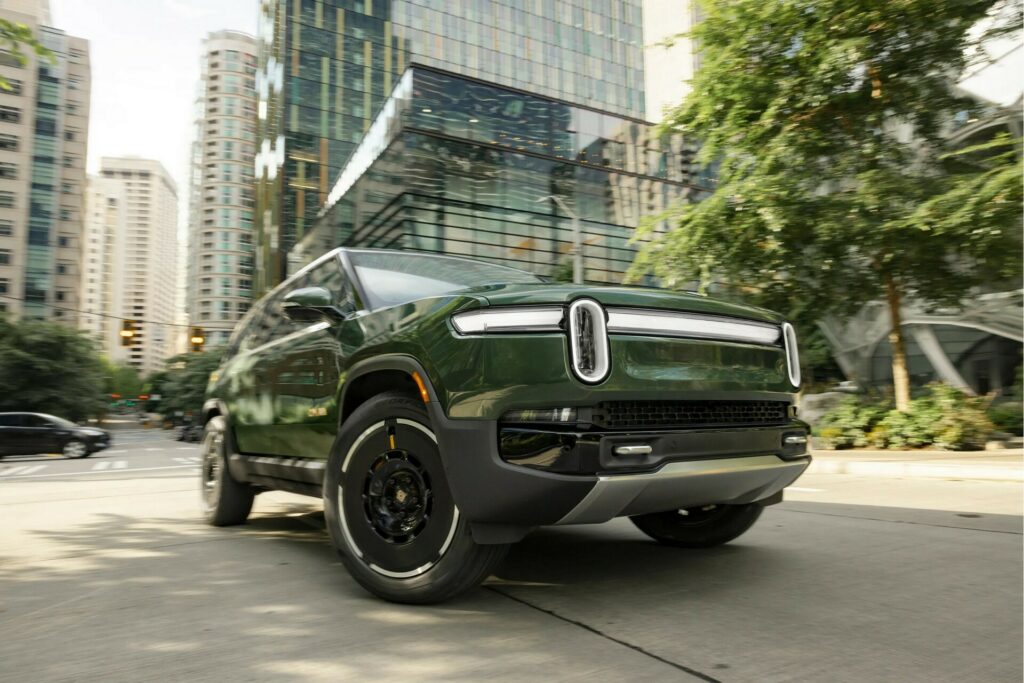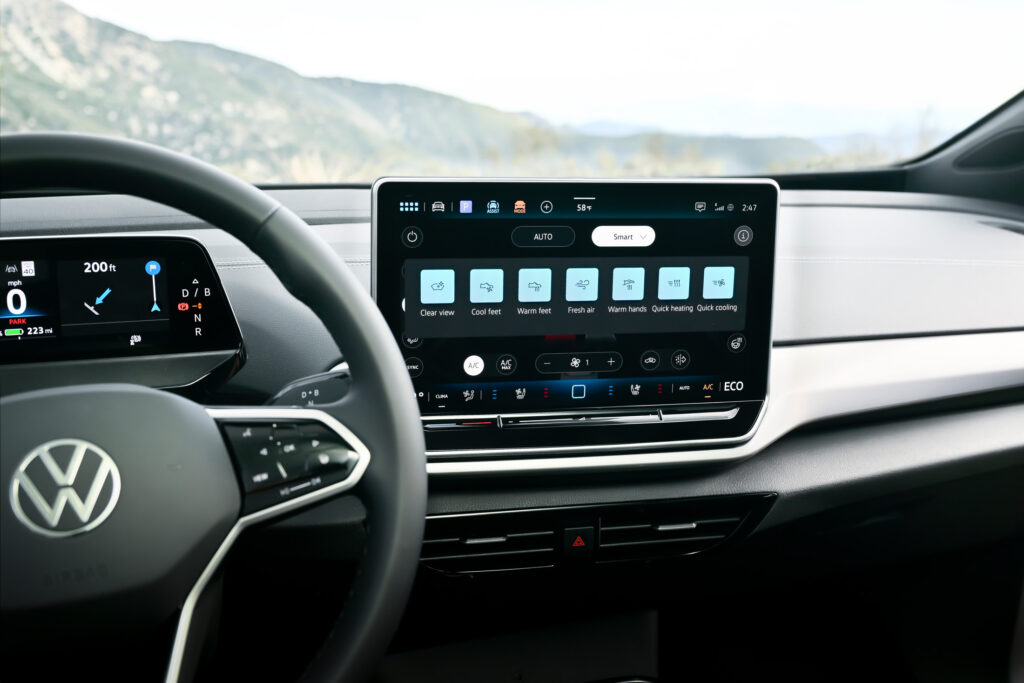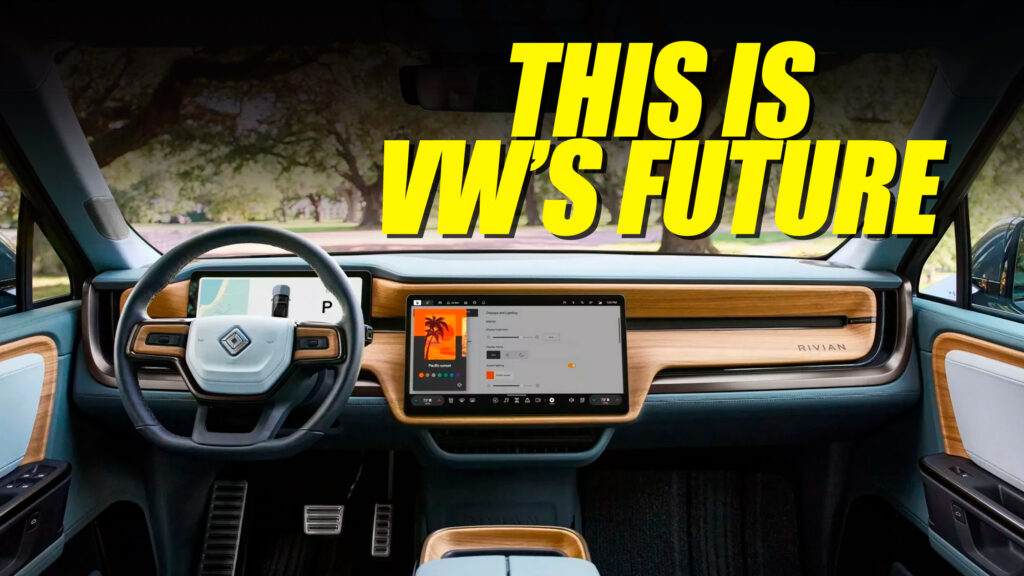- The JV was formed while VW’s own Cariad software division struggles with its next-gen systems.
- Rivian says the funding will support the production of the R2 and R3.
- It’s unclear which VW models will be the first to use Rivian software.
Volkswagen will invest around $5 billion in Rivian and form a joint venture with the U.S. electric vehicle startup to develop next-generation electrical architecture and software technologies that future models from the two brands will use.
Through the joint venture, Rivian’s existing integrated technology platform will be the foundation for future software-defined vehicle (SDV) platforms. In addition, the EV maker will contribute its expertise in electrical architectures and license intellectual property rights to the joint venture. This will allow VW to use Rivian’s existing SDV platforms in future EVs.
Read: VW Hires Ex-Tesla, Rivian, And Google Engineer To Work On Its Next Software
The Volkswagen Group will initially commit $1 billion to Rivian through an unsecured convertible note, converting into common stock in December. The German company will then allocate an additional $2 billion in two $1 billion tranches in 2025. In 2026, it will directly contribute another $2 billion into the joint venture.
The formation of the joint venture comes after repeated delays for a next-generation software platform being developed by VW Group’s in-house Cariad software division. The company was formed while VW was still headed up by Herbert Diess and created to develop software platforms for all VW brands, including Porsche, Audi, Bentley, and VW. Delays forced VW to push back the launches of the Audi Q6 e-tron and Porsche Macan Electric on several occasions.
“We’re very excited to be partnering with Volkswagen Group,” Rivian chief executive RJ Scaringe said. “Since the earliest days of Rivian, we have been focused on developing highly differentiated technology, and it’s exciting that one of the world’s largest and most respected automotive companies has recognized this. Not only is this partnership expected to bring our software and associated zonal architecture to an even broader market through Volkswagen Group’s global reach, but this partnership also is expected to help secure our capital needs for substantial growth. Rivian was created to help the world to transition away from fossil fuels through compelling products and services, and this partnership is beautifully aligned with that mission.”

VW has not said which models will be the first to launch with Rivian software. In recent months, the carmakers have worked to ensure Rivian’s electrical architecture and software work with existing VW Group vehicles. The joint venture is expected to be completed in the fourth quarter of 2024.
Speaking with Reuters, Rivian chief executive RJ Scaringe said the investment from VW will turn the R1S and R1T cash flow-positive while also providing it with the funding needed to develop and produce the new R2 and R3.
“Our customers benefit from the targeted partnership with Rivian to create a leading technology architecture,” VW Group chief executive Oliver Blume added. “Through our cooperation, we will bring the best solutions to our vehicles faster and at lower cost. We are also acting in the best interest of our strong brands, which will inspire with their iconic products. The partnership fits seamlessly with our existing software strategy, our products, and partnerships. We are strengthening our technology profile and our competitiveness.”




